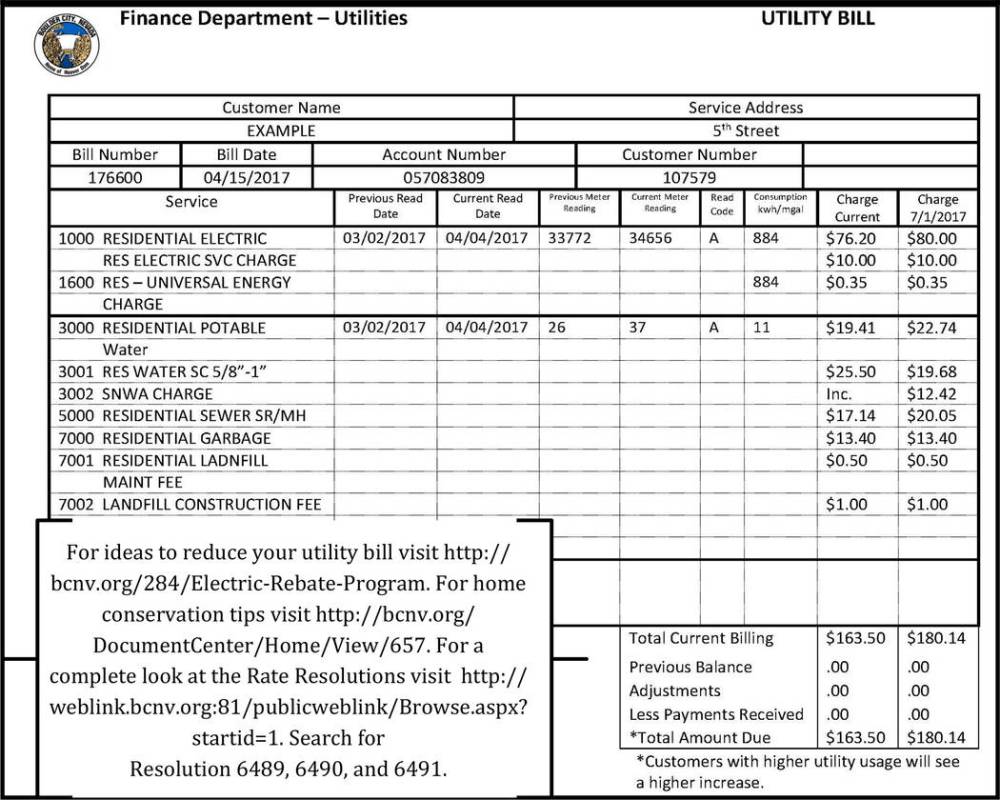
Starting in two weeks, Boulder City residents will see a utility cost increase that is part of a series of increases approved by the city for the next few years.
The new rates go into effect July 1 and are the second of a four-year phased increase that began in October.
As an example, the city offered what the increase would mean for a family of two adults and a toddler on Fifth Street. The city estimates the total bill for all three utility services — water, sewer and electric — will increase almost $20, to $180.14 from $163.50.
Within that amount the electric rates will increase $0.0043 per kilowatt hour, which the city estimates will cost that same family approximately $4 more a month.
The cost of water will increase to 30 cents per 1,000 gallons, as well as include a $6.60 monthly service charge. In addition, the cost of sewer is increasing by nearly $3 per month.
“The residents will not see a decrease in services,” said Acting City Manager Scott Hansen. “In fact, in the years to come residents will notice improved reliability in the form of less outages and shorter outages. As the revenues increase, we will have the ability to replace aging transformers and other infrastructure before it fails, rather than a more reactive approach.”
The monthly bills will be adjusted to show which portion goes directly to the city and what goes to the Southern Nevada Water Authority.
“The higher tiers for electric and water are also increasing,” he said. “Naturally, larger users of the utilities will see larger increases.”
In terms of why the residents will have to pay more now, Hansen said inflation plays a role.
“As with private utility companies, the city experiences annual cost increases for wholesale power, capital projects to maintain the system, and annual operations,” he said. “Most utility companies raise rates a few percent each year to account for inflation. In the future, the city will follow this model by adjusting rates annually.”
The increase resulted from a rate study initiated by the city in 2015.
“The report from the consultant provided two options,” he said. “The first option was an immediate increase to get the rates to where they should be based on the city’s needs. The second option would phase the increase in over four years. City Council selected Option 2 … This phased in approach to rate increases provides time for customers to implement conservation measures such as replacing thermostats with programmable thermostats, replacing inefficient air conditioning units, sod removal, etc.”
Contact reporter Celia Shortt Goodyear at cgoodyear@bouldercityreview.com or at 702-586-9401. Follow her on Twitter @csgoodyear.